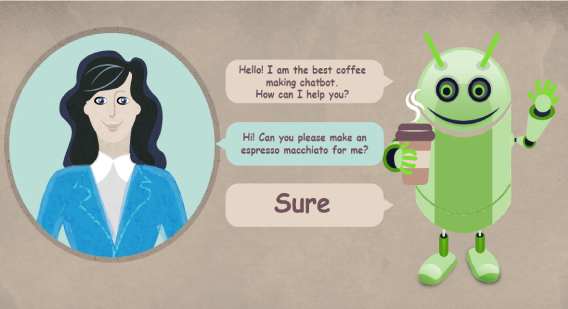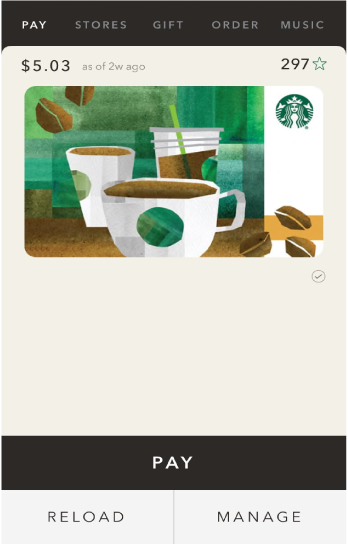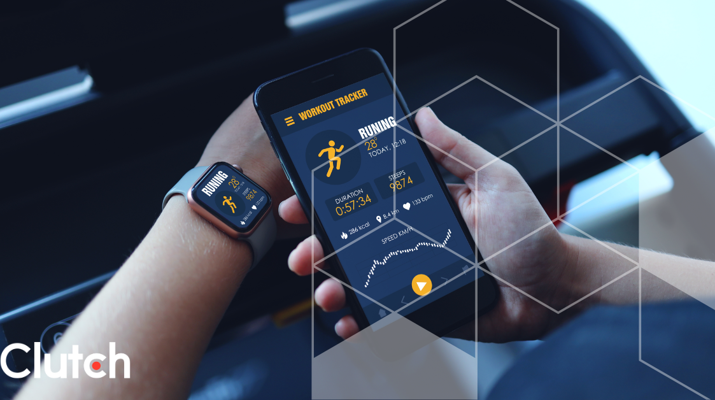

Updated December 18, 2024
Mobile applications have proven value for businesses. For those firms that remain resistant to the idea of developing an app, understanding the ability of apps to target, engage, support and retain customers should provide ample reasoning for them to build a mobile application of their own.
Updated 09/07/2022
For businesses seeking new ways to engage their customers, mobile apps are all the rage.
Looking for a Mobile App Development agency?
Compare our list of top Mobile App Development companies near you
The number of small businesses and startups planning to build a mobile app has only increased over time. In 2022, the mobile app development industry is estimated to be worth $206.73 billion.
If nothing else, the increase in the amount of businesses embracing mobile apps reflects a larger recognition among the business community of the value mobile apps can provide.
The following article lists four benefits of mobile apps that drive customer engagement and produce value for a business, all of which serve as powerful reasons that all businesses should consider investing in, and building, an app for themselves.
Are you a business owner looking to build a custom mobile app? Connect with an expert development company on Clutch.
In a world where smartphones, social media, and mobile devices run the world, it many seem obvious why investing in an app would be critical in meeting business needs.
Regardless of whether you choose to develop for iOS, Android, or both, here are four areas where mobiles apps can grow a customer base, build brands, and increase brand loyalty:
The advantages of mobile apps is apparent in the abundant improvements they offer to customer experience, customer support, and customer satisfaction.
The “mobile” aspect of mobile apps provides the distinct dimension to the marketing utility of apps.
In addition to niche targeting and data-driven advantages of traditional digital marketing channels, mobile apps have mobile-specific technologies that provide unique and effective means for app owners to engage with their customers.
One such form of mobile-specific technology compatible with mobile apps is geo-targeting, a function which allows mobile marketers to segment target audiences on a granular level by tracking user location through an app.
The degree of targeting capable through this technology allows marketers both to deliver personalized messages to their customers and engage them in the most optimal marketing contexts, for instance, when they enter a store.
An example of the effective use of mobile-specific technologies in a marketing context is a 2016 campaign carried out by Whole Foods.
In this campaign, Whole Foods partnered with location-based marketing company Thinknear to place “geofences,” or virtual boundaries monitored by GPS location-enabled devices, around a number of their store locations.
When a mobile app user came within the geofenced area, a targeted ad or special promotion appeared on her phone.
Overall, through this campaign, Whole Foods raised its post-click conversion rate to 4.69%, over three times the national average of 1.43%.
The success of the marketing campaign, and others like it, is not possible without the specialized technology that’s compatible with mobile products and allows marketers to reach their customers in small but influential ways.
Duolingo is known for leaning into comedy when crafting push notifications for their app.
To encourage users to pick up their mobile phones and learn a language (which can be a difficult thing to keep up), they send notifications that could only be described as playfully threatening.

Source: Duolingo
Here, the notification motivates a user to take their daily Spanish lesson....or else. This marketing strategy has been highly effective for the company, and has made Duolingo’s cute-but-threatening owl beloved on social media.
Duolingo proves that push notifications don’t need to be boring. Consider how you want to build your brand, get creative, and the engagement will follow.
According to the aforementioned survey, small businesses invest in mobile apps to improve customer service.
However, this benefit is not exclusive to small businesses. Mobile apps provide an opportunity for all businesses to improve and expand their customer service capabilities.
There are two primary methods through which mobile apps enhance customer service capabilities
Below are respective examples of how each of these app-centric methods work to improve customer service for a business.
CVS and Walgreens offer apps that improve customer service through convenience, by allowing customers to refill orders and prescriptions in their apps.
While this functionality is by no means revolutionary, it's very effective. By offering this type of convenience, these brands set themselves apart from the competition. This helps attract customers who don’t have time to visit the store and have their prescription refilled.
Chatbots and other integrated customer-facing technology in mobile apps provide another boon to customer service through garnering consumer trust and goodwill.

Because chatbots respond instantaneously to customers, they allow users to engage with brands in real-time, from any location.
Thus, bots prove particularly useful when applied to functions like answering frequently asked questions or educating customers about how to use a product.
Mobile apps also work to help businesses secure loyalty among users.
Customer loyalty procurement through an app commonly takes the form of loyalty programs and promotions, either exclusive to, or compatible with, a company’s app.
Through an app-based loyalty program or promotion, a business may:
Starbucks Rewards is one example of the impact a loyalty program can have on securing customer loyalty, which in turn, can improve a businesses’ bottom line.
Customer retention strategies should be top-of-mind for all companies, and Starbucks is one of many companies that have mastered turning in-app experiences into offline purchasing decisions.

Starbucks’ loyalty program rewards consumers for their purchases and makes it easy to place orders before entering the store. (The program actually was so popular that it caused lines to become too long in the stores.)
Whenever a new user downloads a mobile app, a treasure trove of valuable customer data is unlocked, all of which has revenue-generating potential for your business.
Ultimately, collecting and measuring mobile user analytics allows for businesses to track, measure, and optimize their marketing campaigns for user engagement and returns.
The benefits brought by analyzing app analytics data include:
These tactics are particularly popular with e-commerce and retail companies with a need and infrastructure for automating online campaigns. However, in-app findings can steer companies of all kinds in helpful directions.
After smartphone users access apps and mobile websites, it’s time for the marketing team to put the information to work.
Ideally, brands use data collected from mobile app analytics to automate their marketing efforts and deliver messages in the most relevant context for customers.
Customer data can help marketing teams develop automated email marketing messaging, ads encouraging in-app purchases, or the promotion of new products. Having this data makes segmenting users based on demographics and behaviors much easier.
Secondly, knowing more about customers’ in-app behavior allows entrepreneurs and business owners to get a glimpse into how to improve the app for potential customers.
For instance, if few users are successfully completing a specific user flow, the UX team may be able to identify an issue with the user experience.
By fixing these UX issues, companies are able to use data for good by making their product usable and accessible.
In this context, the process of converting users to paying customers becomes much easier.
The benefits of providing an amazing mobile experience for your customers through an app are undeniable.
Specifically, a mobile app helps you connect with your target audience in a timely, location-based, and context-specific manner that is unique to any other vehicle for customer interaction.
There are four elements inherent to mobile apps that help businesses improve customer interactions:
These capabilities show that mobile apps can make a critical impact for businesses that want to engage their target audience and drive value for their business.
Want to dominate the Apple App Store and Google Play Store? Connect with a
 Michal Kowalski is the Marketing Manager at Ready4S - one of the leading mobile app development companies in Poland, UK and Ukraine. As a marketing leader, he is responsible for boosting the company's growth by generating valuable leads and building brand positioning strategies. He loves finding perfect links between data and creative marketing, in that order.
Michal Kowalski is the Marketing Manager at Ready4S - one of the leading mobile app development companies in Poland, UK and Ukraine. As a marketing leader, he is responsible for boosting the company's growth by generating valuable leads and building brand positioning strategies. He loves finding perfect links between data and creative marketing, in that order.


